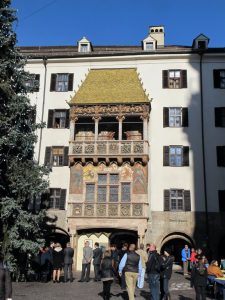5.3 Wie viele Kurse hast du?

Guten Tag!
Zum Aufwärmen machen wir unseren Tagesminiplausch und eine Wiederholung.
Wiederholung
In the previous lesson, you learned how to say how long you’ve been studying German and also how to say the other languages that you speak. Let’s review what you have learned.
Imagine that you are building your resume for an international business internship in Germany. How would you describe your foreign language skills in your cover letter? Kannst du andere Sprachen sprechen? Write your response to this question using the models in the Wiederholung above as a guide.
Lektionsüberblick
In this lesson, we will expand on your ability to talk about your studies to include talking about how many courses you are taking. Along the way, you will learn about some of the similarities and differences between German and US universities. In the end, you will be able to 1) say how many courses you are taking, 2) name the days of the week, and 3) say on which days you have class.
1) How to talk about your course load
Saying how many courses or credit hours can be a badge of honor of sorts. Let’s learn to say how many courses we are taking this semester.
Kleiner Hinweis
Other words for classes include:
| die Lehrveranstaltung/der Kurs = the course
das Seminar = smaller, discussion style class |
die Vorlesung = lecture
das Praktikum = lab |
 |
Let’s practice.
Remember: You can ask the question back with “Und du?“
Jetzt bist du dran!
Österreich im Blick – Goldenes Dachl

Das Goldene Dachl ist ein berühmtes Bauwerk in der Innsbrucker Altstadt. Das Wahrzeichen wurde 1500 fertiggestellt und ist mit 2.657 feuervergoldeten Kupferziegeln für Kaiser Maximilian und seine Braut Bianca Maria Sforza verziert. Gemeinsam standen sie auf dem Balkon und beobachteten das Geschehen auf dem Platz darunter.
The Golden Roof is a famous structure located in the Old Town section of Innsbruck. The landmark was completed in 1500 and is decorated with 2,657 fire-gilded copper tiles for Emperor Maximilian and his new bride Bianca Maria Sforza. Together they stood on the balcony to watch events in the square below.
2) Die Wochentage
In order to talk about your classes, you will need to feel confident with the days of the week in German (die Tage der Woche). The good news is that you have seen the days of the week in the Tagesminiplausch at the beginning of every lesson. Let’s do a quick review with the following activity.
Just like in English you can add a little 2-letter word before the day of the week to mean on: Am Montag, am Dienstag, etc.
Let’s practice that now.
Jetzt bist du dran!
3) Name your class days
Let’s put it all together to say when we have our classes. Read the comic below.
 |
How does Phillip say that he has Music on Friday? Am Freitag habe ich Musik. You can also say, Ich habe Musik am Freitag.
Let’s practice.
Jetzt bist du dran!
Zum Schluß
 |

*As you conclude this lesson, don’t forget to check Canvas!*

Media Attributions
- Die Tage der Woche activity adapted from apps.zum.de by Karl Kirst, licensed under CC BY-SA 4.0 International License.
Media Attributions
- Private: 1010-at-banner-large
- Comic made at www.MakeBeliefsComix.com
- Photo of Goldenes Dachl by Bbb at wikivoyage, CC BY-SA 3.0
- 5.3 philip musik file-6717f29debf4f
- studentplan file-6717f4b135aea no background

